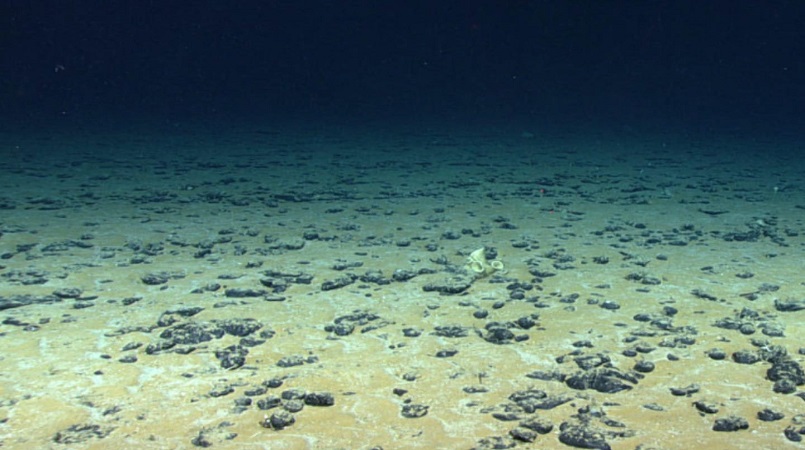
The Pacific island nation of Nauru has stated its intention to start deep-sea mining in two years’ time, despite the fact that the International Seabed Authority (ISA), the U.N. body governing this activities, has yet to agree upon overarching rules and r
In a letter dated June 25, the Nauru President Lionel Aingimea wrote to the president of the council of the 26th sessions of the ISA to say that its sponsored company, Nauru Ocean Resources Inc. (NORI), “intends to apply for approval of a plan of work for exploitation” within two years. Nauru has been a member of the ISA for the past 25 years, which gives it the authority to notify the ISA of this intention.
NORI, a subsidiary of Canadian-owned The Metals Co., formerly DeepGreen Metals, already has a 15-year license to explore for minerals in the Clarion Clipperton Zone (CCZ), a 4.5-million-square-kilometer (1.7-million-square-mile) abyssal plain stretching between Hawai‘i and Mexico that has an abundance of polymetallic nodules — potato-sized rock accretions on the seafloor that contain commercially valuable metals like cobalt, nickel, manganese and copper.
Nauru is invoking what’s commonly referred to as a “two-year rule,” a clause in the U.N. Convention on the Law of the Sea (UNCLOS) that allows member states to notify the ISA of their intention to start deep-sea mining. This, in turn, requires the ISA to adopt rules, regulations and procedures to govern the proposed mining activity. If this is not achievable, the ISA must at least evaluate the mining proposal by the end of the two-year period.
Andrew Friedman, the project lead for seabed mining at Pew Charitable Trusts, says the invocation of the two-year rule does not necessarily mean NORI will be approved by the end of the two years, but he still says he is “pretty concerned” about the development.
“The process is certainly weighted towards approval of that application,” Friedman told Mongabay. He added it will most likely be the ISA’s Legal and Technical Commission (LTC) — an advisory body made up of volunteers, many of whom are civil servants in their home countries — to review the application and decide if it can be approved.
“Now, we have never seen an application for exploitation,” he said. “But the LTC, to my knowledge has, or at least in the recent past, has not disapproved any applications for exploration, the preliminary phase that is supposed to lead into exploitation.”
Friedman said he is also concerned that deep-sea mining will go ahead before a proper mining code has been adopted, which would set out rules and regulations for deep-sea mining. The ISA previously set a 2020 deadline to finalize its mining code, but negotiations were delayed due to the COVID-19 pandemic. In a press release, the ISA said it expected to resume its work on exploitation regulations before the end of 2021.
“We are nowhere near ready to govern seabed mining in the deep ocean,” Friedman said. “We don’t have the governance infrastructure in place at the ISA. We don’t have the capacity to properly evaluate applications.”
Experts at the Deep Sea Conservation Coalition (DSCC) have suggested that the triggering of the two-year rule was used to facilitate the recent multibillion-dollar merger between DeepGreen and the Sustainable Opportunities Acquisition Corp. (SOAC), which together became The Metals Co.
